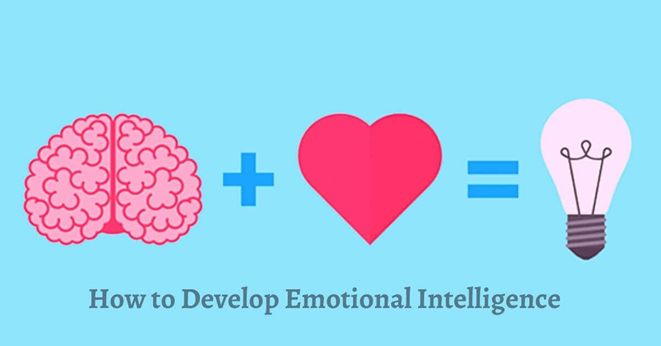
In today’s fast-paced and diverse work environments, success is no longer measured by technical skills alone. While qualifications and experience are still important, emotional intelligence (EI) has emerged as a key trait that separates good employees from great ones.
WHAT IS EMOTIONAL INTELLIGENCE

Emotional intelligence is the ability to recognize, understand, and manage your own emotions while also being aware of and sensitive to the emotions of others. It includes five key components:
1. Self-awareness
2. Self-regulation
3. Motivation
4. Empathy
5. Social skills
WHY EI IS IMPORTANT AT WORK

1. BETTER COMMUNICATION
People with high EI communicate more clearly, listen actively, and handle difficult conversations with tact. This helps avoid misunderstandings and promotes a more positive work culture.
2. STRONGER TEAMWORK
In any group setting, emotions run high. EI helps individuals collaborate, respect diverse perspectives, and resolve conflicts calmly, building trust and stronger teams.
3. IMPROVED LEADERSHIP
Great leaders are not just knowledgeable, they’re emotionally intelligent. They inspire, guide, and support their teams while also managing stress and pressure effectively.
4. ADAPTABILITY
The workplace is constantly evolving. Emotionally intelligent individuals can stay calm under pressure, adapt to change, and support others through transitions.
5. CONFLICT RESOLUTION
Where people work together, disagreements will arise. EI enables employees to manage disputes constructively, turning conflict into an opportunity for growth.
6. INCREASED JOB SATISFACTION
Teams with emotionally intelligent individuals tend to be more positive, respectful, and productive, leading to higher morale and job satisfaction.
CAN EMOTIONAL INTELLIGENCE BE DEVELOPED?

Yes. Unlike IQ, EI is something you can grow with effort. Here’s how:
– Practice self-awareness: Regularly reflect on your reactions and emotional triggers.
– Learn to pause: Before reacting, take a moment to process your emotions.
– Be empathetic: Try to understand things from other people’s perspectives.
– Improve your communication: Listen more than you speak and ask thoughtful questions.
– Stay open to feedback: Constructive criticism can help you grow personally and professionally.
In a world where collaboration, adaptability, and communication are essential, emotional intelligence has become a vital workplace skill. It not only shapes how we work with others but also how we lead, grow, and succeed. Developing EI can transform your career and your life.
By: Adenola Eniola.

